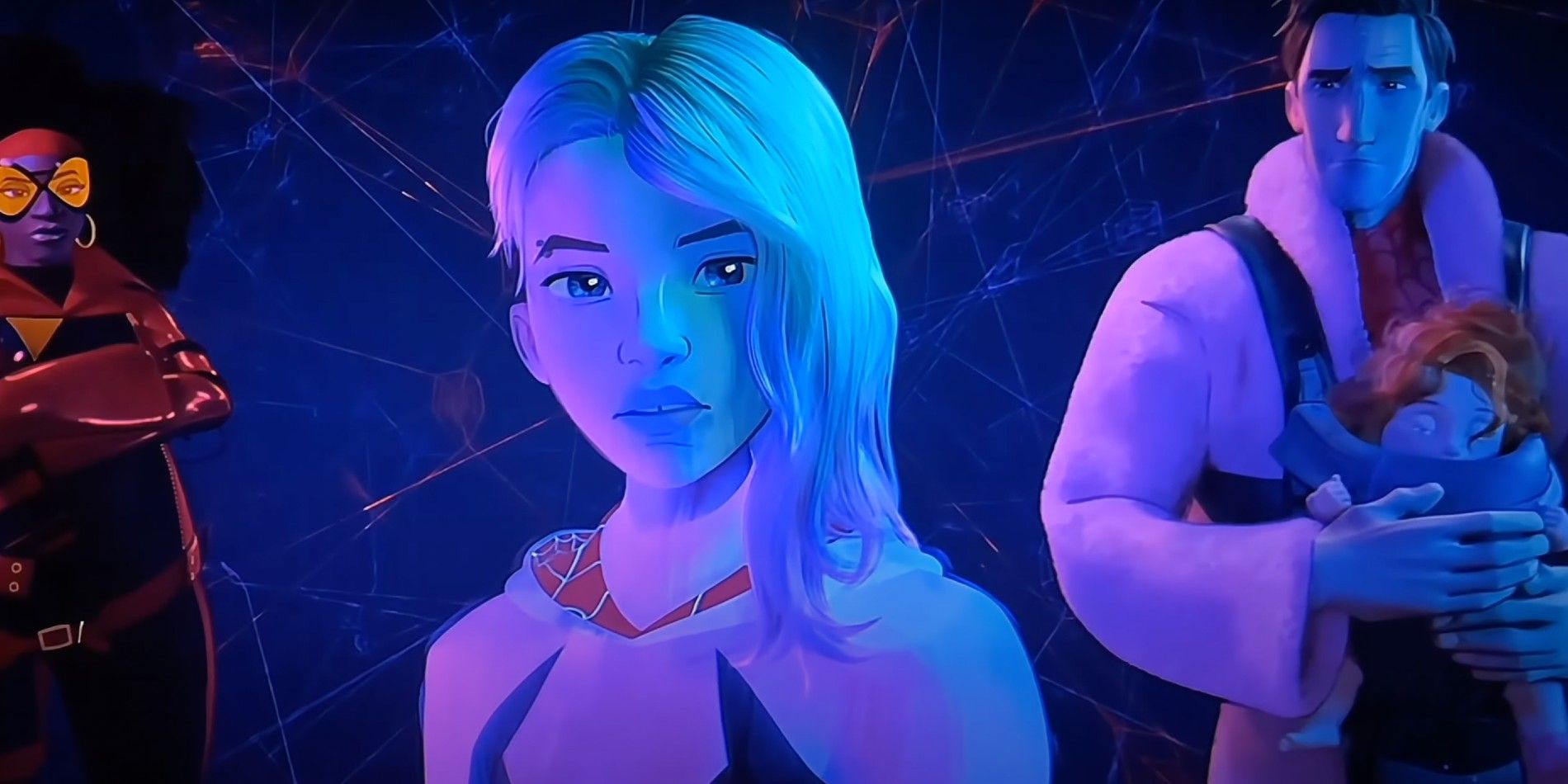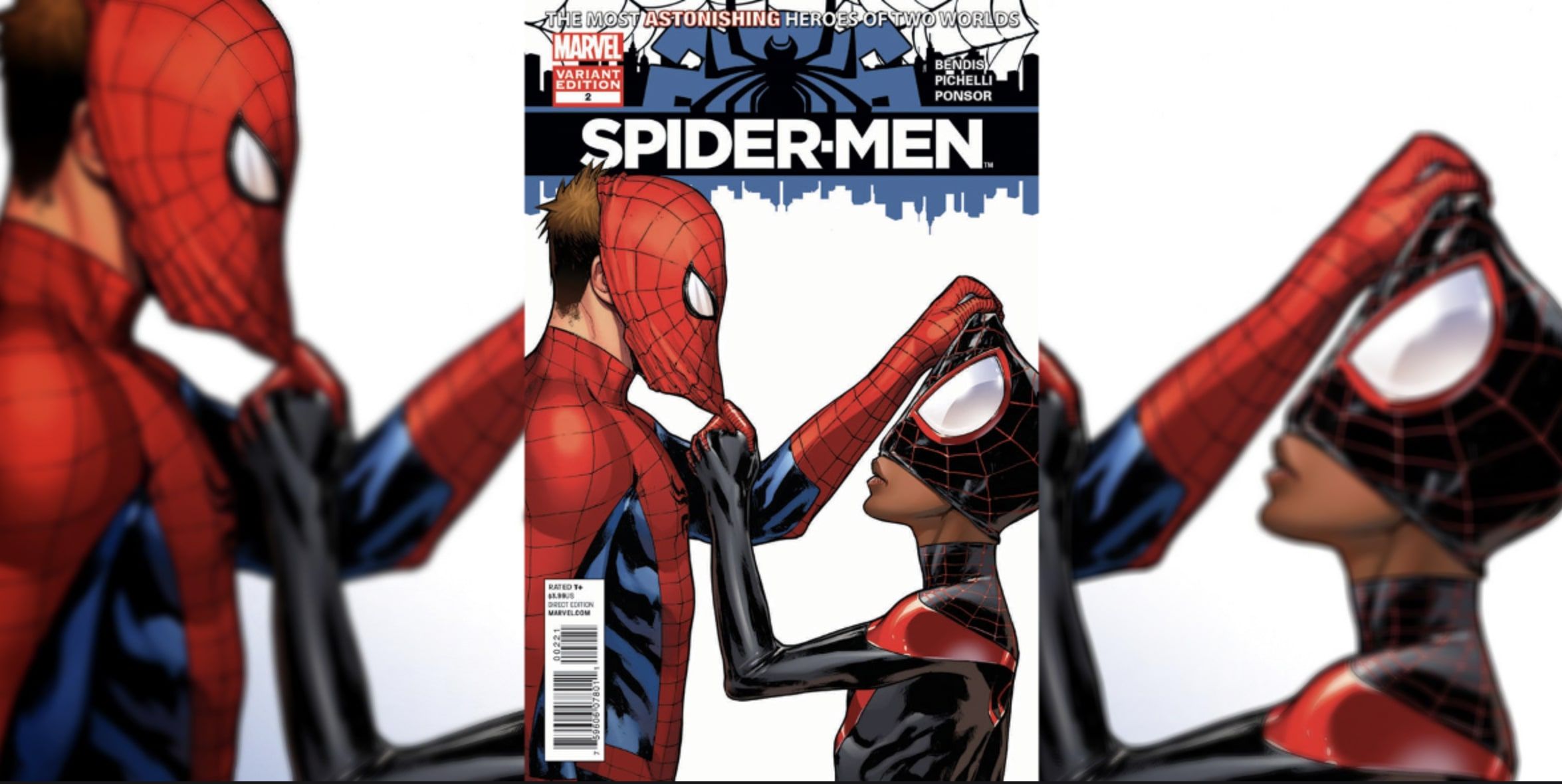
The Revolutionary Impact of Spider-Man: Across The Spider-Verse on LGBTQ+ Community

Gwen Stacy's room in Across The Spider-Verse displays a powerful Protect Trans Kids poster, hinting at a deeper LGBTQ+ representation that resonates with fans Discover Gwen's arc, the coming-out journey, and the exploration of themes of 'otherness' in this groundbreaking film
Spider-Man: Across The Spider-Verse has received high praise for its impressive visual storytelling since its release. However, fans are not only applauding the film for its visuals. The Spider-Man franchise has always been known for its attention to detail, Easter Eggs, and subtle hints, and fans are now taking to social media to celebrate one particular implication in Across The Spider-Verse: the possibility that Gwen Stacy is transgender.
Spider-Man: Into The Spider-Verse, released in 2018, is still considered one of the greatest superhero films of all time. It broke boundaries by featuring a young Afro-Latino protagonist and was highly acclaimed by both fans and critics. Across The Spider-Verse continues to build on these themes and expands representation to even more communities. From the way Gwen is depicted during her most emotionally impactful moments to the presence of trans flags in her and Captain Stacy's apartment, LGBTQ+ fans have been openly commending the film for its inclusion of queer themes and imagery that feels authentic, rather than a mere marketing ploy.
What is Gwen's arc in the movie?
In the opening moments of Across The Spider-Verse, it becomes clear that Gwen Stacy is living a life of isolation. As the sole Spider-Person in her universe, Earth-65, she faces the aftermath of her best friend Peter Parker's transformation into the Lizard after a failed attempt to acquire powers. With Peter's demise, Spider-Woman finds herself pursued by the newly-appointed Captain Stacy and the NYPD, who hold her accountable for Peter's death.
After a confrontation with an alternate-universe Vulture, which introduces the characters Miguel O'Hara and Jessica Drew, Spider-Woman finds herself at a standoff with Captain Stacy, who is determined to apprehend her. Desperate to save herself, she unveils her true identity to her father. Despite this revelation, Captain Stacy persists in his pursuit of his daughter, blaming her for her friend's demise. Faced with these circumstances, Gwen makes the decision to leave with Miguel and Jessica, embarking on a journey to join the Spider Society in Miguel's home universe.
After a series of events that culminate in a confrontation between Miles Morales (voiced by Shameik Moore) and Miguel, she is expelled and sent back to Earth-65. Upon returning home, Gwen engages in a heartfelt discussion with her father. It is revealed that Captain Stacy resigned from the NYPD after realizing that he could not effectively fulfill his role as a father while simultaneously pursuing his daughter as a member of the institution. Determined to honor her father's legacy, Gwen embraces her destiny as a symbol of heroism and embarks on a mission to rescue Miles from Miguel and the rest of the Spider Society.
Gwen Stacy's transgender identity in this movie is a complex question. While there is no explicit revelation or disclosure of her being a trans-girl, neither is there any indication that she is cisgender. The movie's unique art style further adds layers to Gwen's character. Unlike Miles' comic book-like world, Gwen's world is depicted as a vibrant watercolor painting. The colors surrounding Gwen change according to her emotional state, often featuring light blue, light pink, and white, which are the colors of the trans flag. Additionally, subtle details like the "Protect Trans Kids" poster in Gwen's bedroom and the trans flag pin on Captain Stacy's uniform serve as complementary elements, resembling a traditional "Coming-Out" narrative in her arc.
Does Across The Spider-Verse mimic the coming-out journey?
Spider-Woman, also known as Gwen Stacy, faces a similar dilemma as Miles in terms of keeping her true identity hidden. She grapples with the pressure of maintaining her double life, leading to strained relationships with her loved ones. The film explores the metaphorical aspect of Spider-Man's secret identity, showcasing the challenges and sacrifices that come with it.
Spider-Woman aspires to be a hero, but unintentionally becomes a villain in her father's eyes. Despite Gwen perceiving herself and Spider-Woman as two sides of the same coin, Captain Stacy primarily views Spider-Woman as the one who robbed Gwen of her innocence by "killing" Peter Parker. Even when Gwen initially discloses the truth to him, he still sees Spider-Woman as a villain. He perceives a dangerous figure with his child's face and holds her at gunpoint. Captain Stacy's anger and unwavering commitment to his beliefs, disregarding his own child's safety, resonates with many young LGBTQ+ individuals, particularly queer children in conservative families or environments. Even after Gwen returns to her original universe and reunites with her father, he doesn't fully embrace her. While his anger and fear have subsided, there remains an underlying concern about how his daughter will navigate the world with her newfound identity.
Across The Spider-Verse highlights themes of "otherness"
The Spider-Verse franchise fully embraces the allegorical nature of classic Marvel superheroes/groups in its second installment, Across The Spider-Verse. It takes Miles' identity as an Afro-Latino teenager, born to a Puerto Rican mother and Black American father, and incorporates it as a significant driving force behind his story. The film begins by subtly acknowledging and making jokes about his Puerto Rican heritage, such as when his mother speculates that Spider-Man may be Puerto Rican, and his parents' reaction to hearing about his B grade in Spanish class. The movie also portrays a poignant conversation between Miles and his mother, where she advises him not to let anyone make him feel like he doesn't belong in the spaces he occupies. This exploration of Miles Morales' identity as a person of color in a predominantly white environment serves as a fundamental aspect of his character arc in the film.
Gwen's narrative revolves around her feelings of isolation stemming from her own identity. She not only sees herself as an outsider among her family and peers in Earth-65, but her reluctance to embrace her uniqueness in the Spider Society strains her relationship with Miles. The trans and queer subtext in her story in Across The Spider-Verse is evident, as the film embraces this allegory. Gwen Stacy doesn't need to be explicitly labeled as trans or queer to represent the struggles faced by trans and queer individuals worldwide. Her story is that of a young girl grappling with her identity in a flawed world plagued by systemic prejudice, and the potential consequences of revealing her true self to her loved ones are dire. Whether Gwen Stacy is truly trans or simply an ally is intentionally left open to audience interpretation, as the essence of Earth-65 Spider-Woman lies in her heroism and duality, just like any other Spider-Person.












